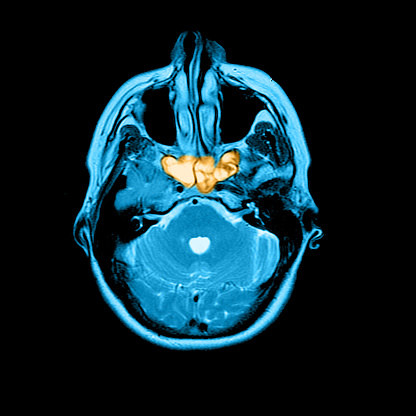Marquel Brumley, a 13-year-old from Mount Morris, Michigan, died last week after a bacterial sinus infection spread to his brain.

In the following weeks, Marquel's severe headache sent him to the ER twice.

Then Marquel woke up with a swollen eye and had trouble moving one side of his face. He was rushed to the ER, where doctors found a sinus infection had spread to his brain.

Doctors performed surgery to control the infection, but the blood clots and increased pressure had cut off oxygen to his brain. He died a few days later.

Most sinus infections are caused by a virus and clear up on their own without treatment. Sinus infections caused by bacteria are not uncommon, but they can be difficult to diagnose in the early stages.
"The biggest problem with diagnosing sinus infections (sinusitis) is that they don't always have very distinctive symptoms, and it can be hard to tell if you're dealing with a bacterial infection or a viral infection," Dr. Richard Lebowitz, professor in the Department of Otolaryngology at NYU Langone Health (who did not treat Marquel), told BuzzFeed News.
Viral and bacterial sinus infections often begin with the same symptoms: congestion, sinus drainage, pressure, pain, and low-grade fever. Although symptoms like green mucus or bad breath are sometimes thought to be signs of bacteria, that isn't always true. "A viral infection from a cold is still an infection so your mucus will probably be green or yellow instead of clear," Lebowitz said. If the infection is viral, antibiotics won't help — you just need rest, fluids, and over-the-counter pain meds when needed.
The most telling sign of a bacterial infection is the timeframe. "The cold will run its course, so a week to 10 days, and then you'll have persistent symptoms or localized pain in the sinuses or cheeks," Lebowitz said. So if your symptoms do not improve or go away after about a week, seek medical care.
Doctors often diagnose sinusitis by looking at the progression of the symptoms and patient history. "The only way to really confirm a bacterial sinus infection is in an ENT office, where we put an endoscope in the nose and we can see where the sinus is draining into the nose," Lebowitz said.
It is very rare for a sinus infection to spread to the brain, but antibiotics can usually help prevent these complications. If you are worried about sinusitis, see a doctor.

After he died, Marquel was an organ donor. "It gives us a little comfort because he just wanted to help people and he still is helping even though he's not here," his aunt said.

